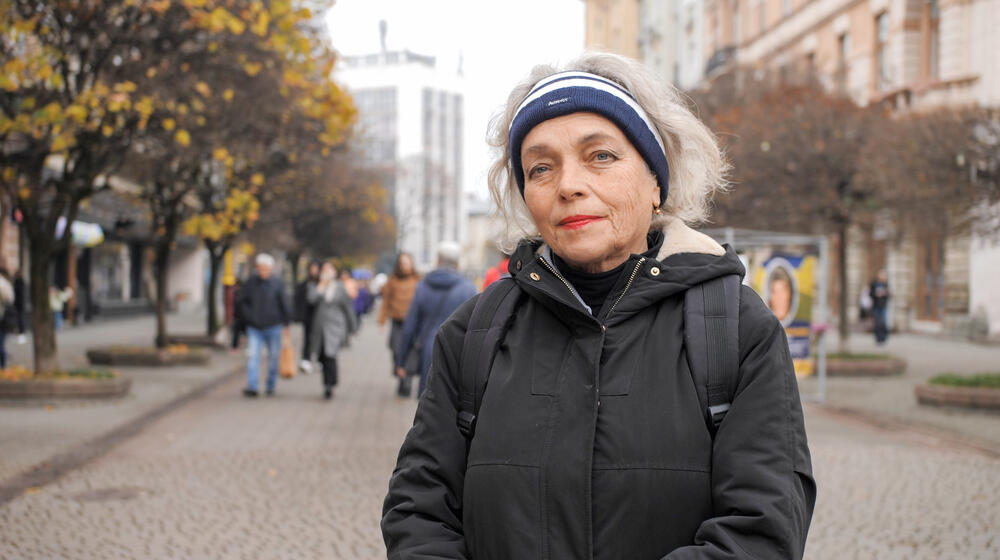Hunger, dead bodies on the streets and a 20-kilometer walk to get out of besieged Mariupol — that was the first month of the war for 69-year-old city resident Liudmyla.
She managed to get to Ivano-Frankivsk, where she not only started a new life, but also works with a psychologist in a social and psychological assistance mobile team, which was launched by the United Nations Population Fund (UNFPA). It is a service that provides support to survivors of domestic, gender-based violence and survivors of war-related violence or trauma.
"After meeting with the psychotherapist, I felt self-confident. She helped me understand that I was moving in the right direction. She did not give specific advice, but directed our thoughts in such a way that we felt calm," Liudmyla recalls.
Liudmyla told UNFPA how she managed to get out of Mariupol and what helped her find herself in a new city.
"We were saved by the fact that the neighbour had stocks of flour"
In the first three days of the full-scale war, water, electricity, and gas disappeared from Liudmyla's flat in Mariupol. Her district came under mass shelling.
"When the shelling started, I sat down at the piano, which was in my neighbour's apartment. If there is an explosion, then at least I am doing my favourite thing. At first, the explosions were heard only from afar, and in early March they reached us. A shell landed on the corner of our house, all the windows flew out. It was good that the piano was not damaged, but I could no longer play. It was minus 10 degrees outside, it became very difficult to play because my hands were freezing," Liudmyla recalls.
But this was not the biggest problem, almost immediately all goods disappeared from stores.
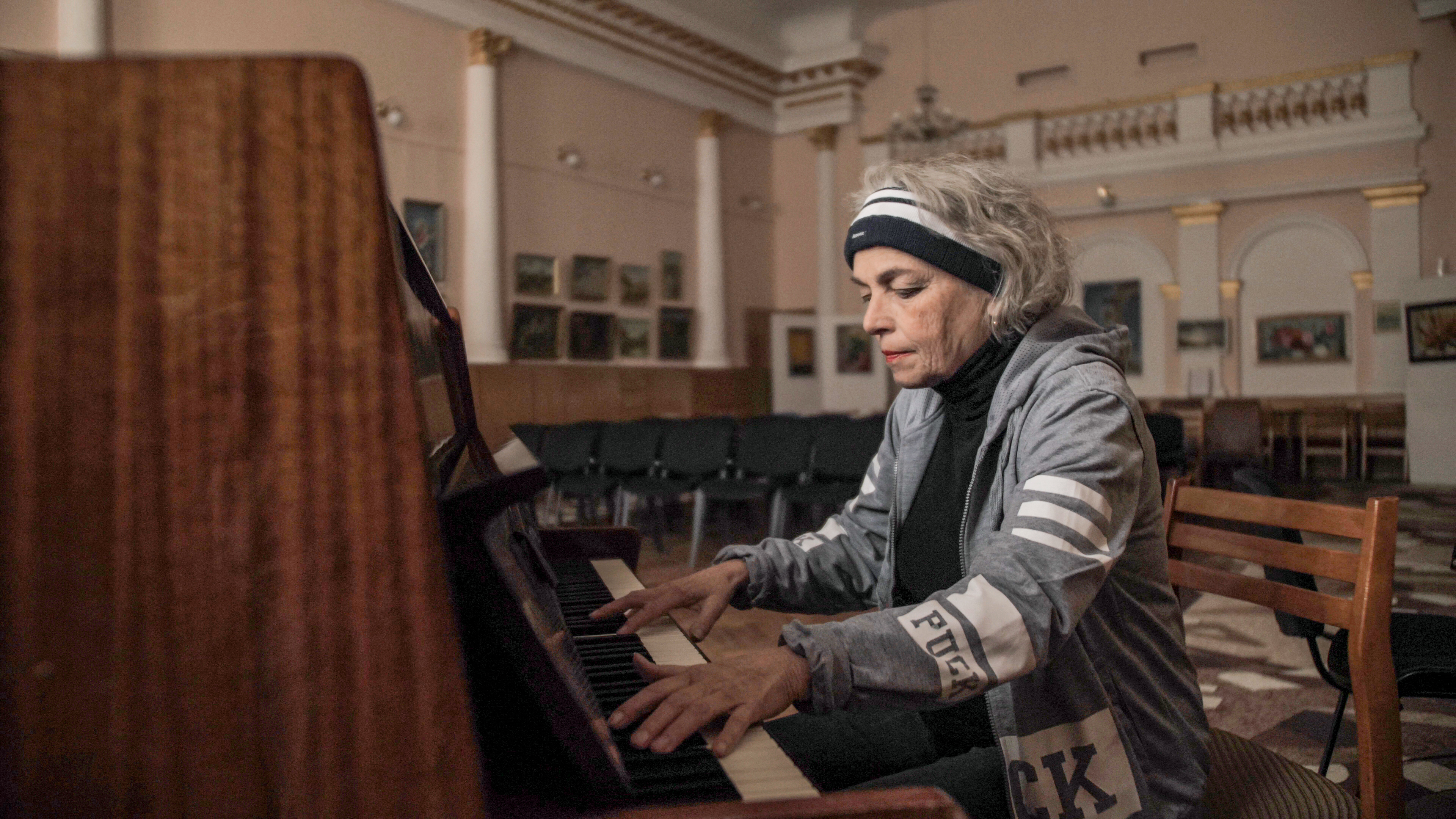
"We could not escape; we had no car, no information. There was nothing. At the same time, the situation in the city was critical. You walk down the street: there is devastation, there is devastation, someone's body is lying there and there is another one over there," says Liudmyla
When the house across the street was completely bombed, Liudmyla moved in with a neighbour. Before the full-scale invasion, she baked cakes, so had a supply of flour. Thanks to this, they could at least make bread cakes on the hearth.
"It was 5 degrees in the apartment, and minus 10 outside. We were outside all day, baking these cakes. All the time, we kept our feet near the fire to warm them somehow. But we were not thinking about the cold, and not even about shelling, but that these cakes would not burn on the fire, because then there would be nothing to eat. I was feeding a big fat cat. Who knew how long we would stay there, and the fat cat can become the only food. But luckily we didn't have to eat a cat. In the context of the general situation, people’s minds work a little differently. We had people who went crazy in those basements," Liudmyla says.
"We got out of Mariupol on foot"
When it became impossible to live in Mariupol, Liudmyla's neighbour decided to walk to Mangush, which is 20 kilometers away. The 70-year-old pensioner decided to go with her.
"When shelling started on the road, we simply fell to the ground, and then got up and went on. It was freezing. We froze and after that everyone was sick. We left our whole lives behind, went out with only what we had on: shoes, pants, a jacket and a bag with medicine. Also, we carried water, because we were afraid that we wouldn't find it anywhere on the way," recalls a resident of Mariupol.
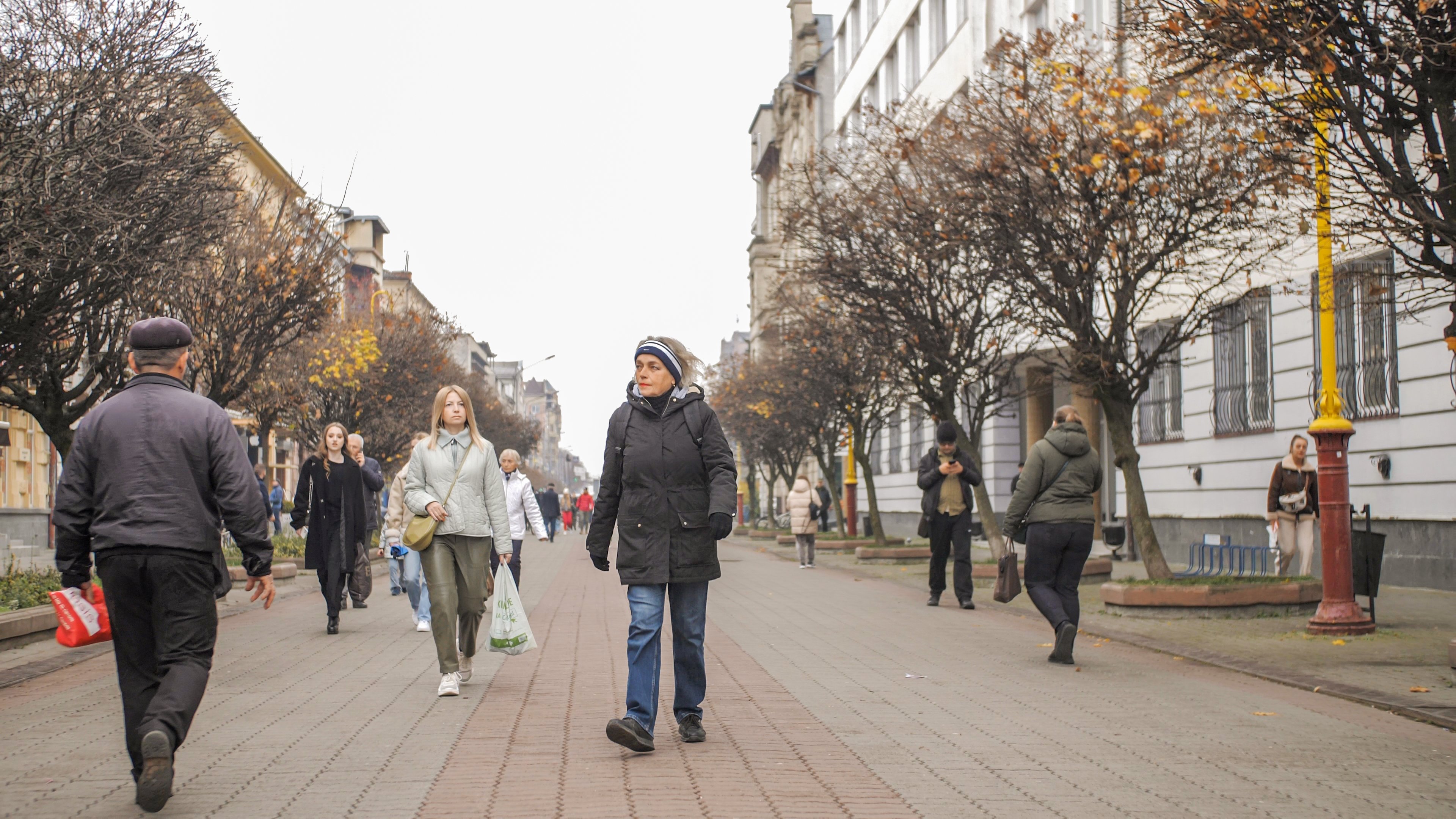
From Mangush they went to Berdiansk, where Liudmyla was met by her friends.
"They let us wash, because we had been in the same clothes for a month. And they gave us a patty with puree. We had eaten nothing but bread cakes for a month, and then they give you a hot chicken cutlet. I ate it and cried," says Liudmyla.
"As if normal life exists separately from you"
"In Mariupol, my task was to survive. I didn't need psychological help there, because I was on adrenaline, trying to do something, help someone. And then, when I got into a calm atmosphere, then these thoughts began to catch up. I go into the store and I'm in a stupor. I stand for 5 minutes and can't figure out where I am. Everything has been bombed and destroyed in my city, and here people are walking normally, buying food. Feeling as if normal life exists separately from you," — Liudmyla recalls her mood after leaving Mariupol.
First, she was able to get to Zaporizhzhia, then she settled in Ivano-Frankivsk. At the "I Mariupol'' centre, she met the psychologist from the UNFPA social and psychological support mobile team. Specialists offered information there about their services and what help survivors of war-related trauma can receive.
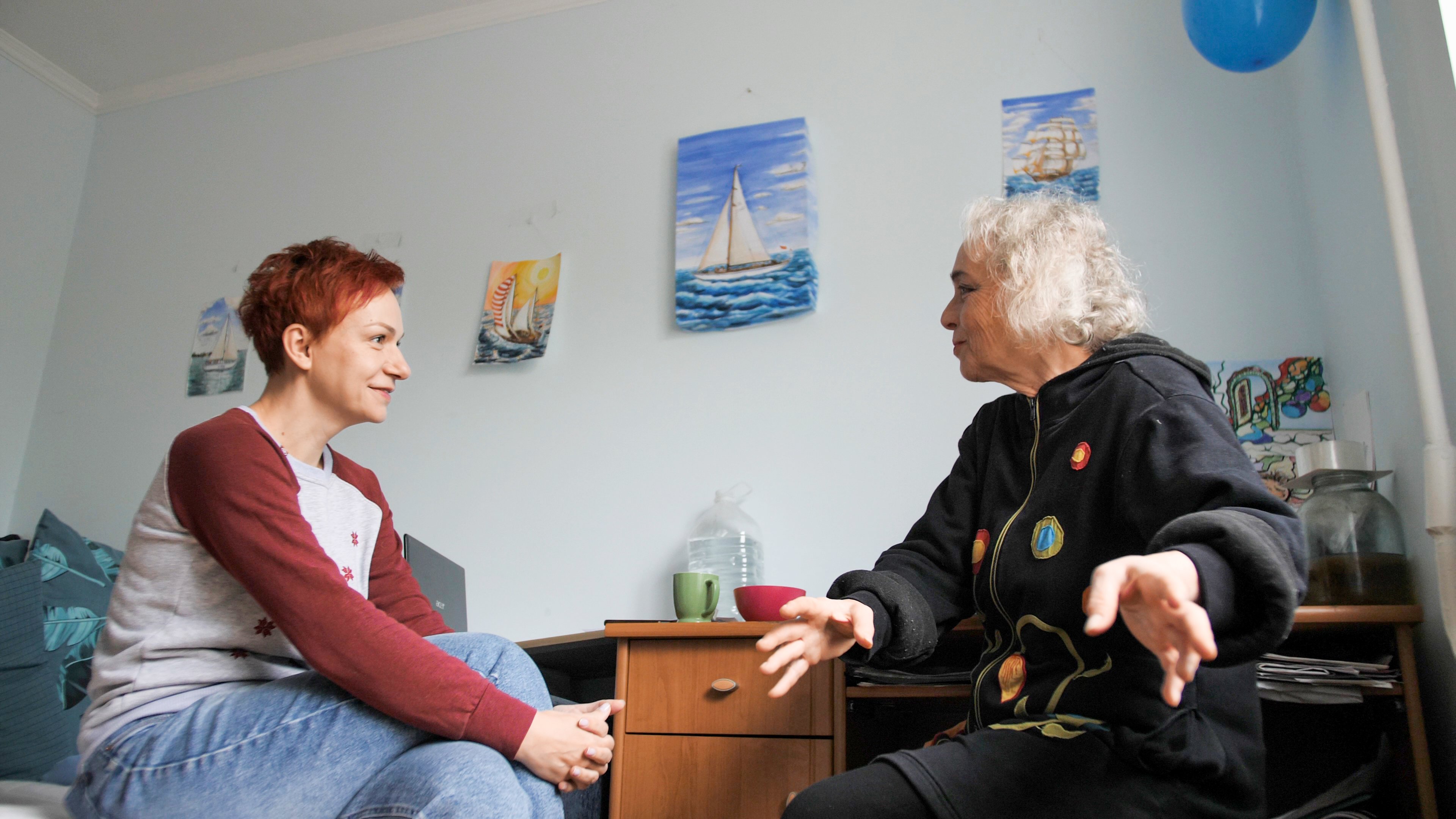
"It seems that you're coping on your own, during the day you move around, you do something, and it's easier, but at night emotions start to overcome you. There is no sea, there is no sailing, which I have been doing all my life, there are no friends and it is difficult. It feels as if half of your life has been stolen from you," Liudmyla shares her emotions.
At first, she attended group therapy with other women who needed support.
"We had such a friendly conversation. After this conversation, you leave as if after meditation. Everything falls into place for you somehow. It gets so good. I don't have any friends here at all, everyone was in Mariupol. There was such an emotional void. And at the therapy session everyone talks about something, the girls sometimes cry, and it becomes easier," says Liudmyla.
Now she attends neurographic classes. This is a type of therapy where drawing lines can alter the neural connections in the brain. In addition to classes with a psychologist, she is trying to build a life in a new city from scratch. She plays tennis, attends yoga classes, gathers with several like-minded people and has organized a music group where she plays the piano.
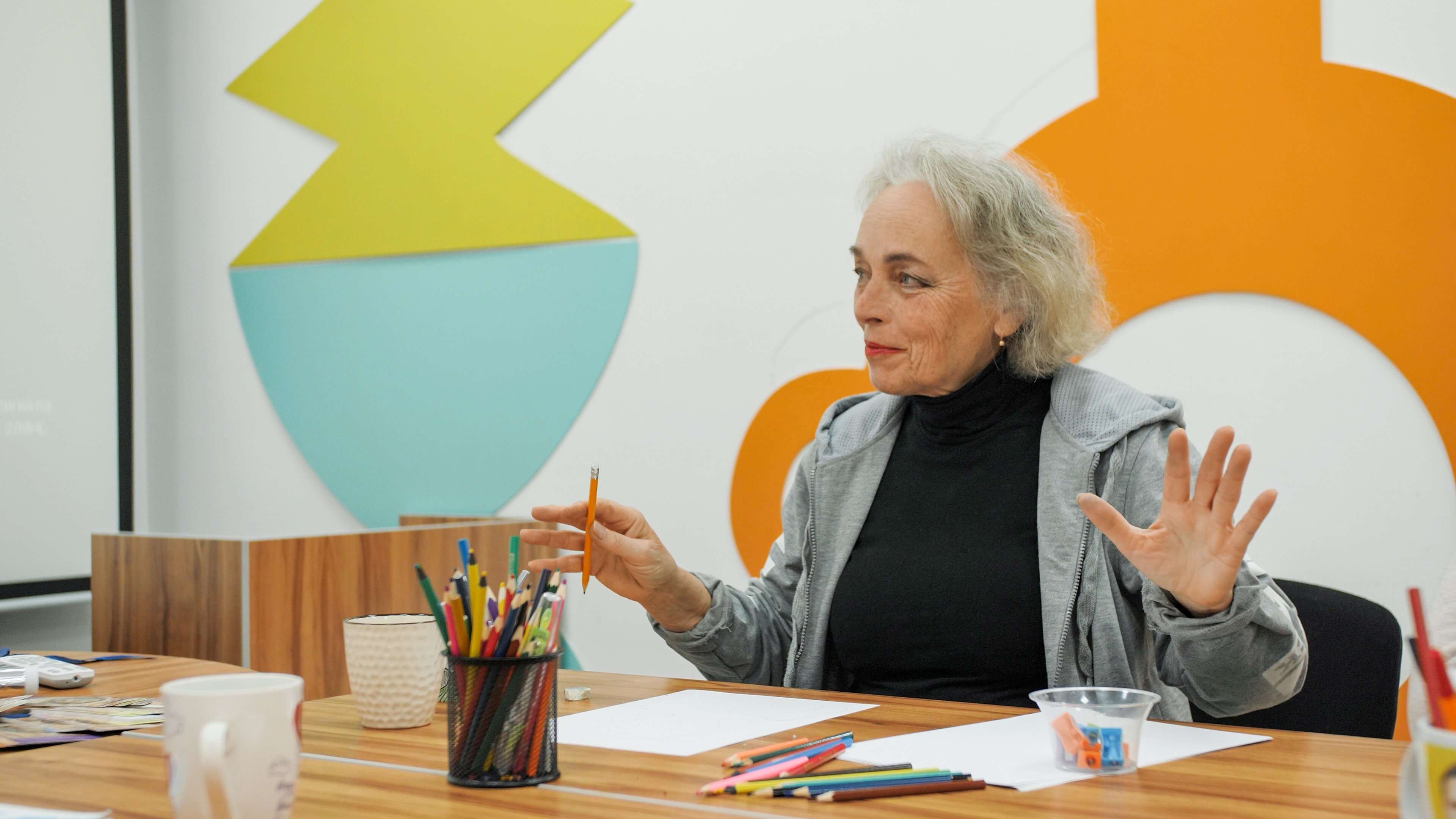
"At the age of 70, I have nothing. I am homeless. Everything that I have gained in 70 years, all of this is gone. I had a new apartment, new electronics, new furniture in Mariupol. We just moved in and lived in our house for a year. We lost all of it. But this is only material. I try to look for support first of all from myself and find a way out of any situation. Because there is always a way out. I believe that I should never give up, should not get stuck and move on," Liudmyla concludes.
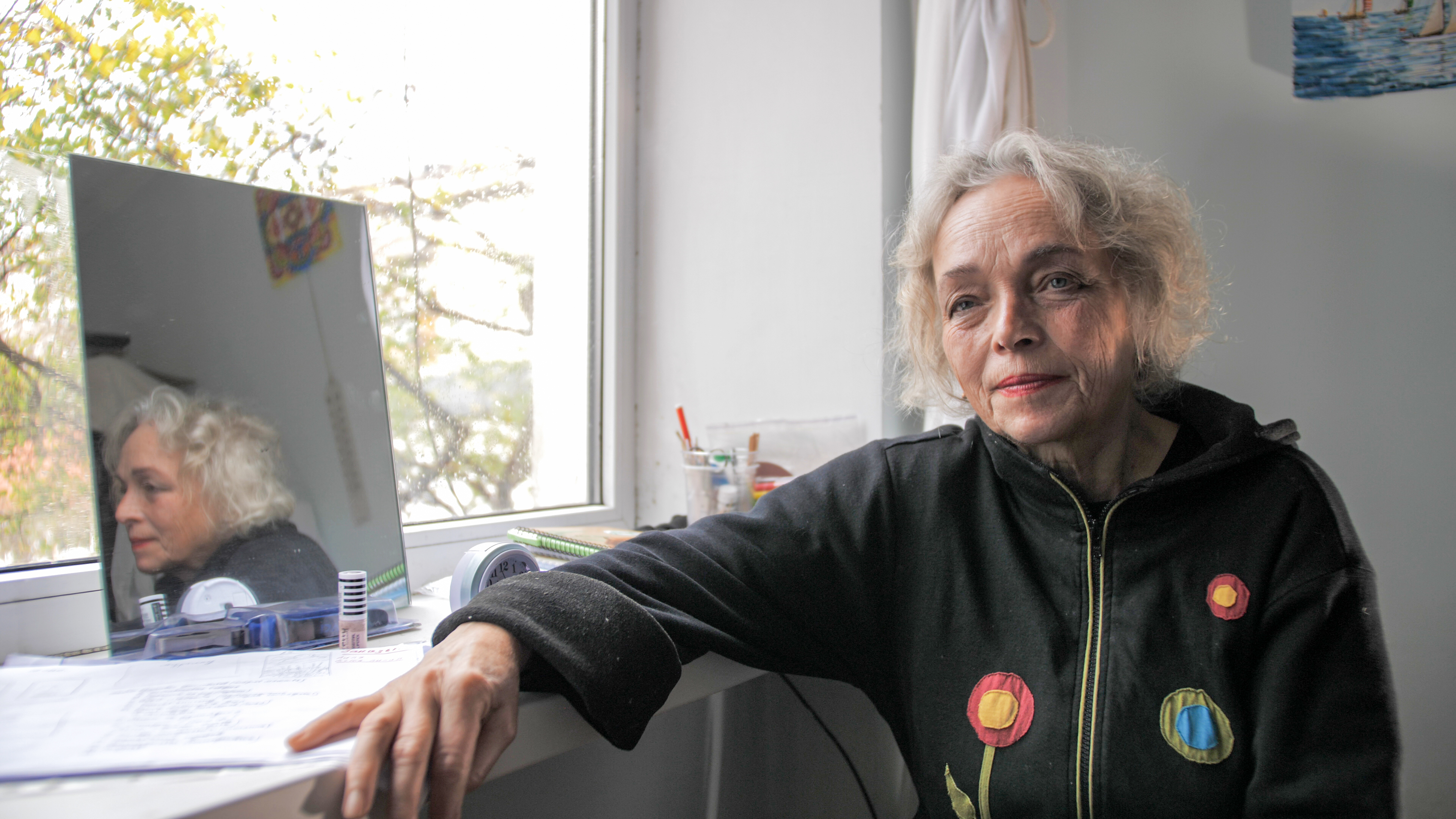
"People start to live a normal life again"
Internally displaced persons are not the only group mobile brigades work with. Anyone suffering from domestic, gender-based violence, war-related violence or trauma can contact them. Specialists respond promptly.
"We provide consultations on social issues, psychological support. I think that this support and unity is very important for people who came from the east, or from the south of Ukraine, who lost their homes, who lost their relatives. They have repeatedly said that they did not expect to receive such support. In communication, you can see how much people are relaxing, opening up and starting to live a normal life again, they are not just starting to regard the city as a temporary shelter, but are becoming citizens of Ivano-Frankivsk," says Lilia Borisova, a mobile brigade psychologist.
The key focus of the brigade's work is on domestic violence.
"When the cases are critical, we offer the women the chance to settle in a shelter, we try to help solve the problem. Sometimes there are cases when it is enough to simply explain to a woman that it is not okay to treat her like that, and they start to change their lives," says Lilia.
Mobile teams work with the support of, the United Nations Population Fund (UNFPA), in coordination with the Office of the Vice Prime Minister for European and Euro-Atlantic Integration of Ukraine, the Ministry of Social Policy of Ukraine, and with the financial support of the Governments of the United Kingdom, Canada, the United States, and the Humanitarian Fund for Ukraine (UHF).
Find contact details for mobile teams in your city on the UNFPA and "Break the Circle" websites.
The material was made with the support of the USAID's Bureau of Humanitarian Assistance. The opinions, views, and recommendations expressed in this video do not necessarily reflect the official policy or position of UNFPA or the US government.

